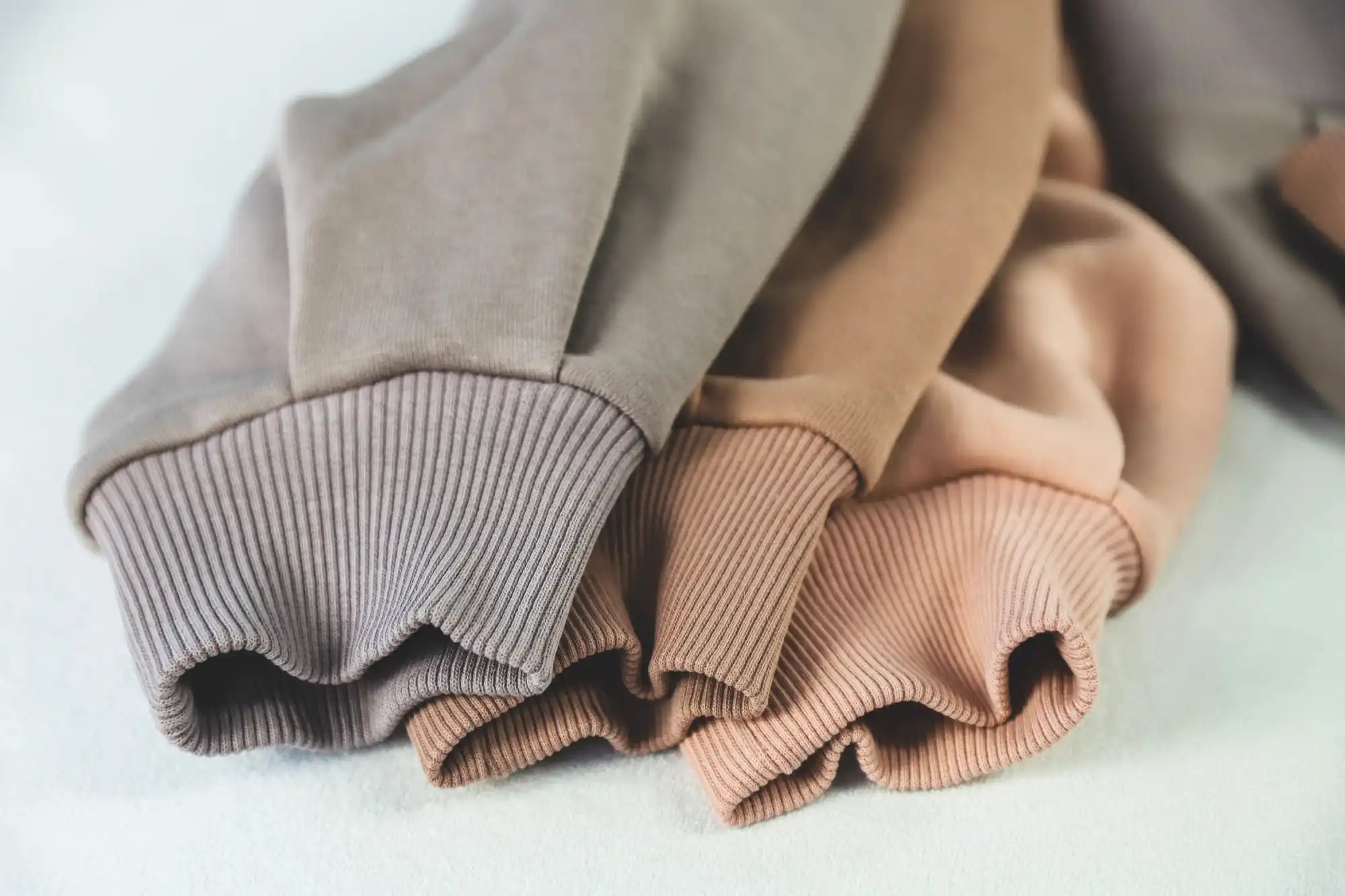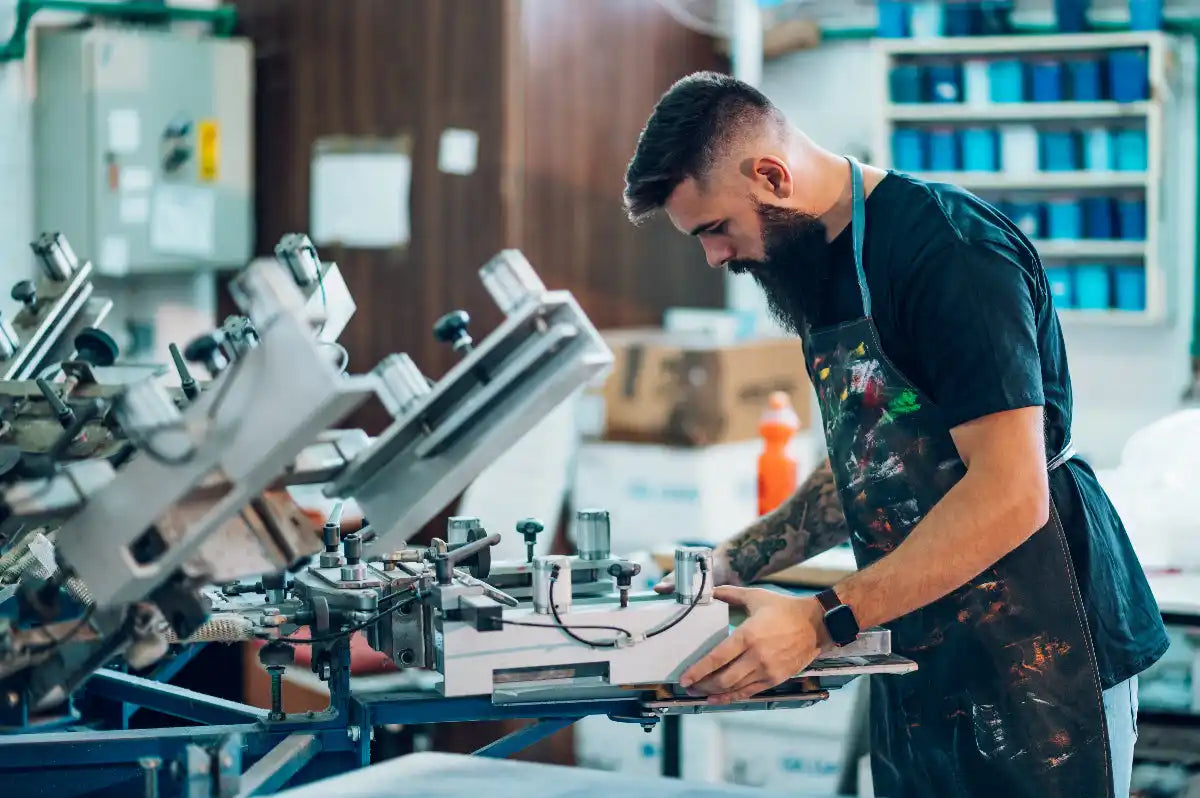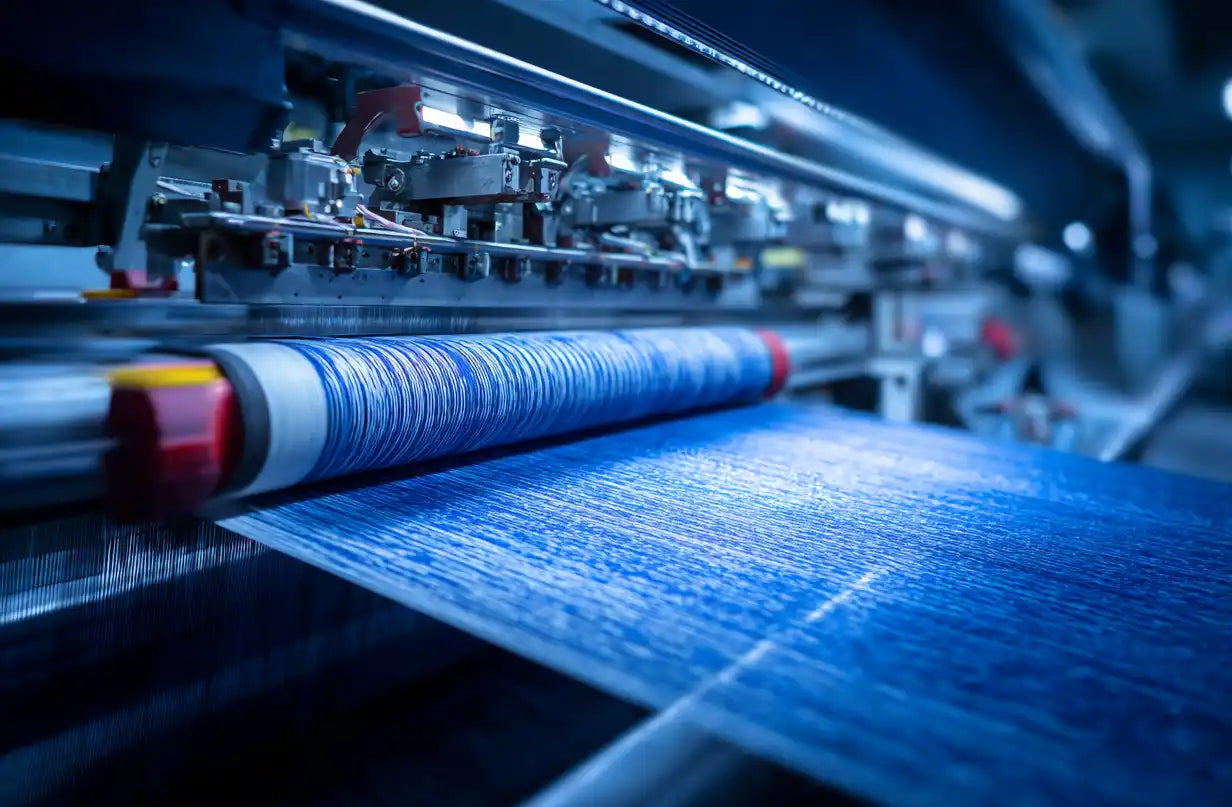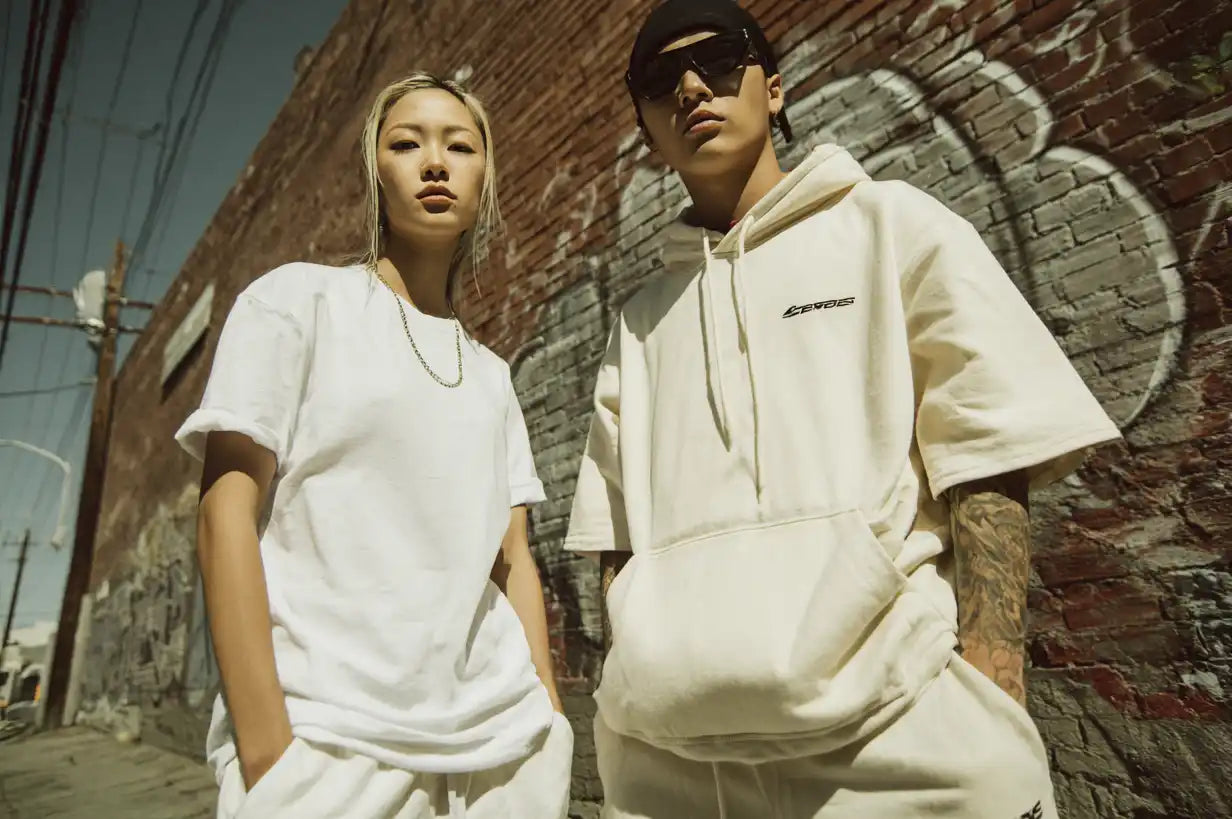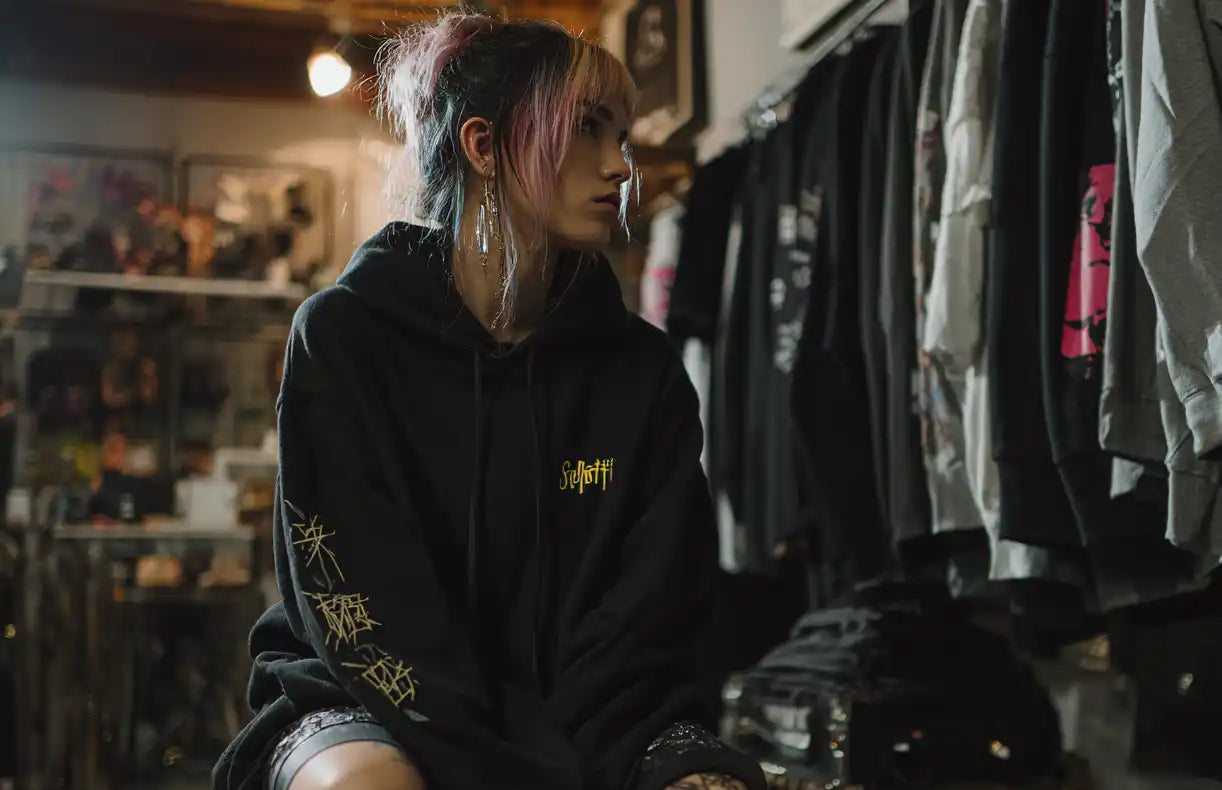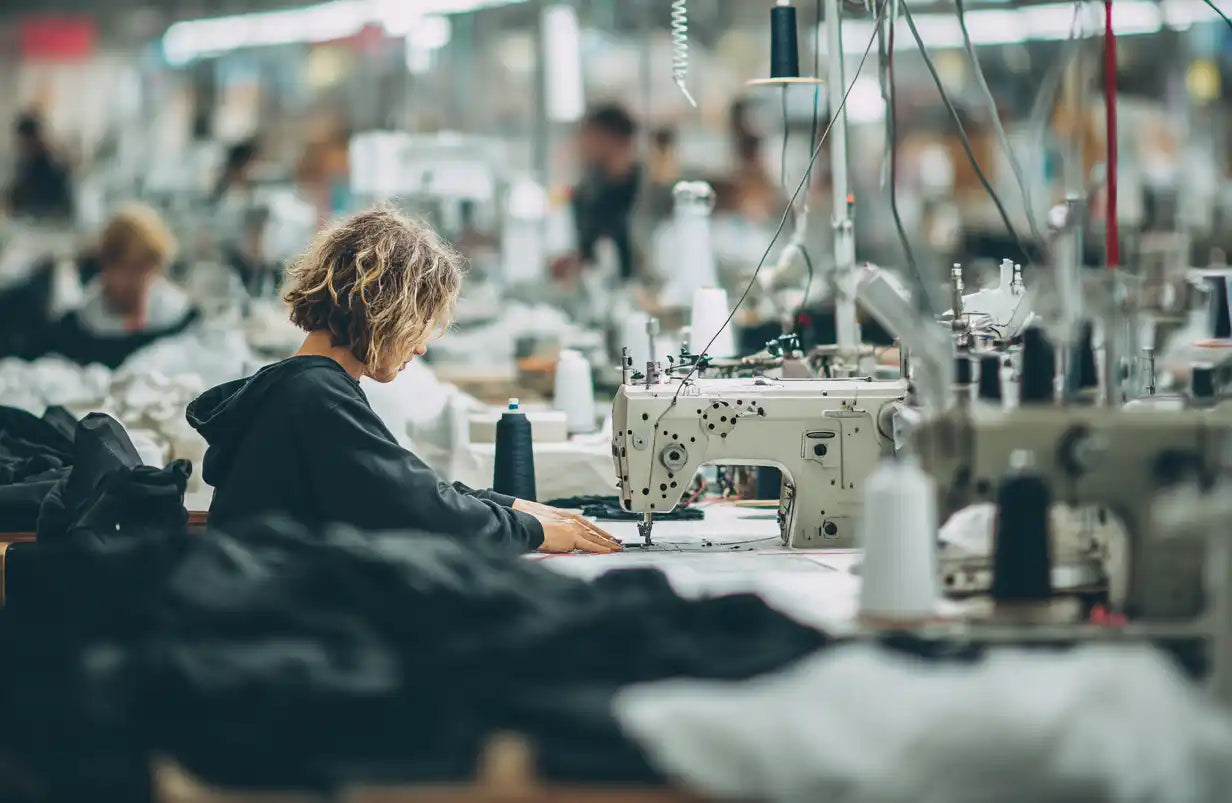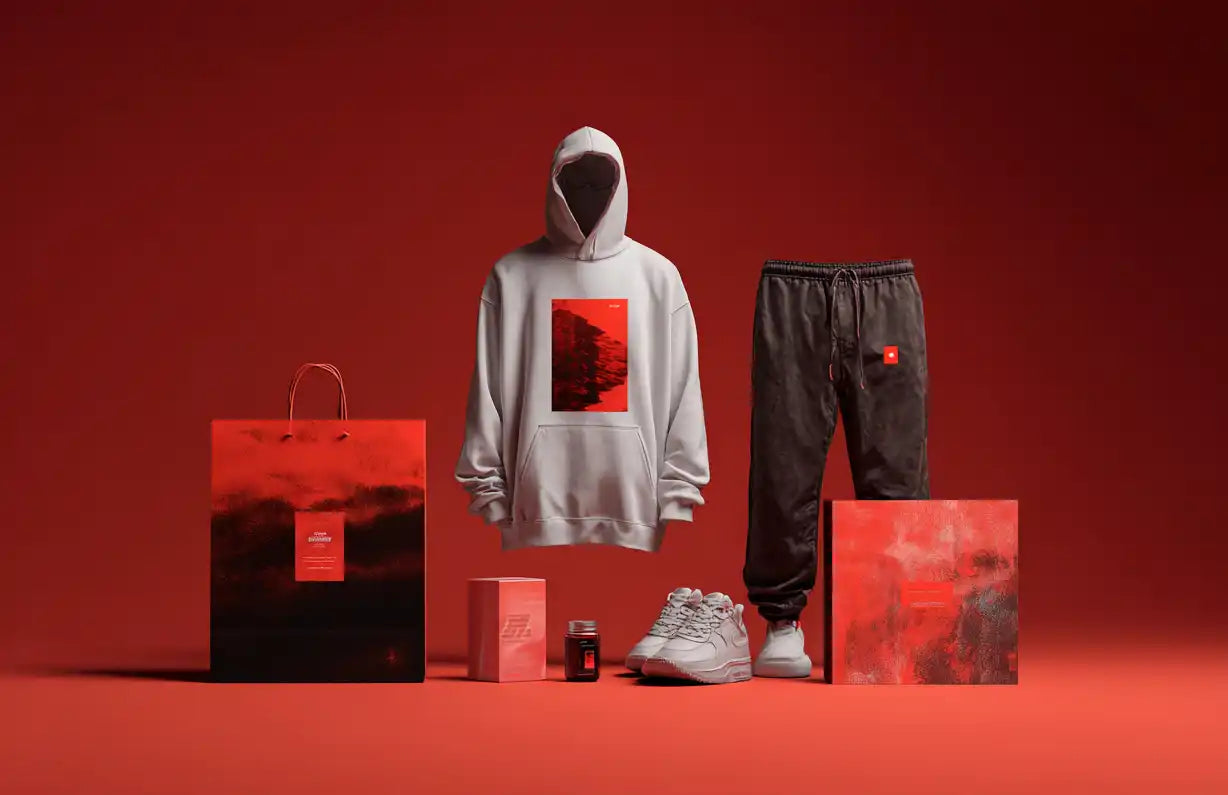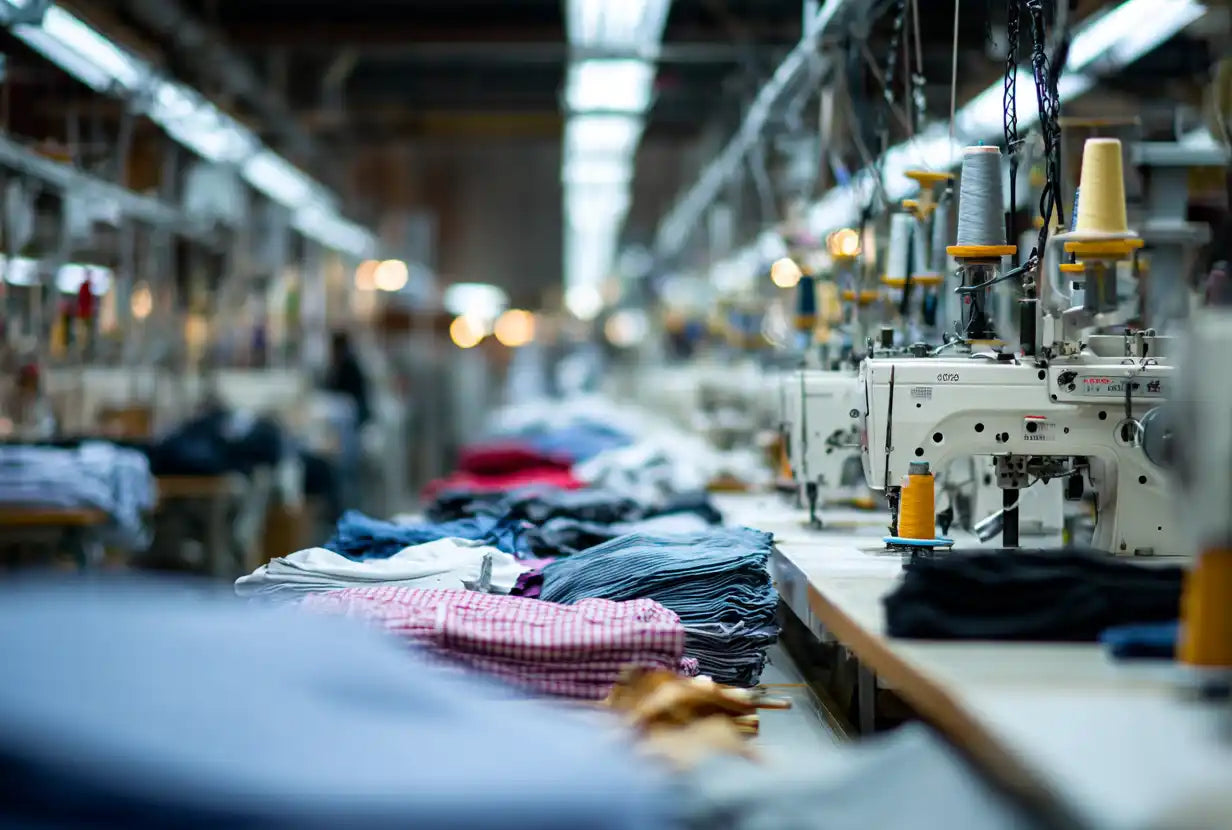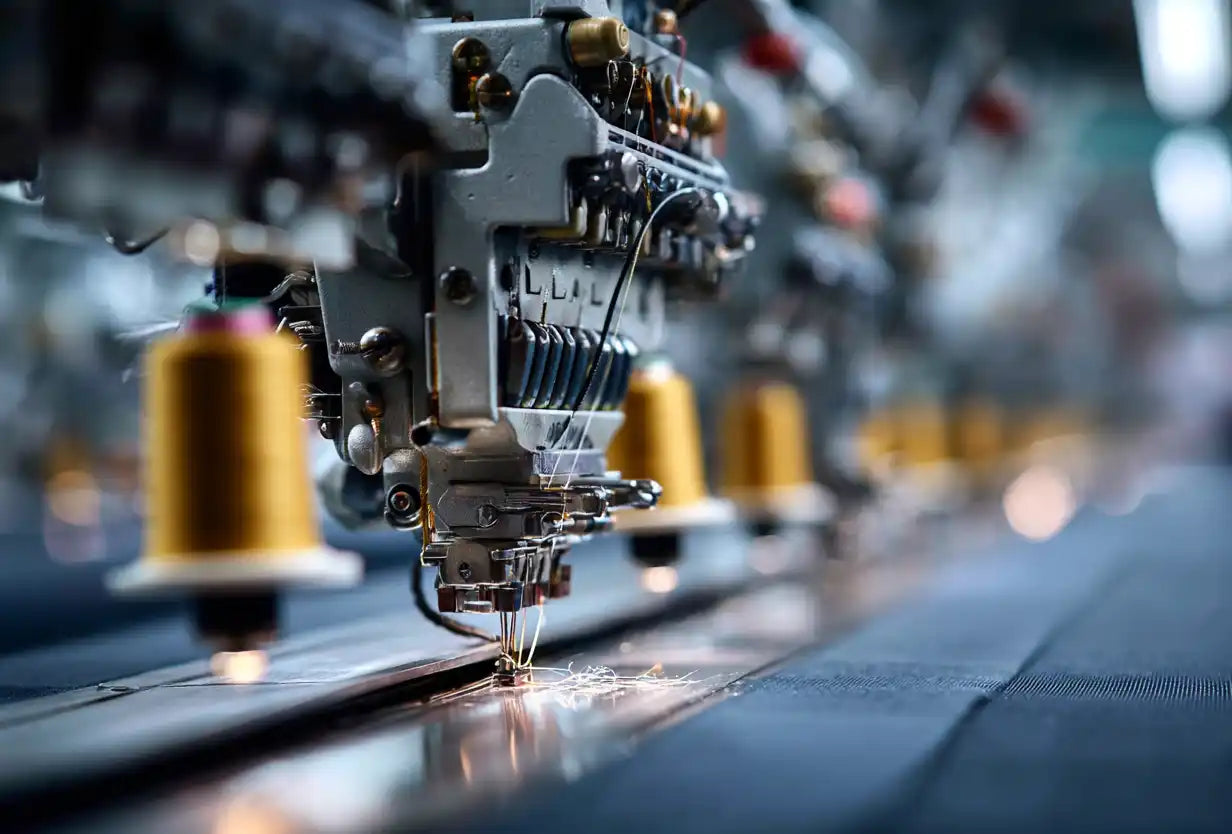Redefining Comfort and Style with Custom Oversized Sweatshirts
Discover how oversized sweatshirts made in Portugal combine sustainable fabrics, precise manufacturing, and flexible customization to create high-value private label products. This guide explains materials, production advantages, design choices, and the practical steps brands use to launch successful oversized collections.

Oversized sweatshirts have evolved into a central category in modern apparel, bridging streetwear, athleisure, and elevated casual wear. Their relaxed silhouette caters to a wide audience while providing a flexible canvas for branding and design. For brands and retailers, the decision to source oversized sweatshirts is strategic: fabric choice, manufacturing partner, and customization options directly influence product quality, margin, and market positioning.
In recent years Portugal has become a preferred sourcing destination for premium oversized sweatshirts. Portuguese factories combine experienced garment technicians with modern equipment, enabling brands to produce durable garments that meet EU regulations and consumer expectations for sustainability. For many startups and established labels, Portugal offers a balance of speed, quality, and compliance not always available from distant suppliers.
This article covers the practical, technical, and commercial aspects brands should consider when developing an oversized sweatshirt line: from fabric selection and production lead times to branding techniques and sustainable credentials.
Why Oversized Sweatshirts Lead Modern Fashion
Oversized sweatshirts are popular because they meet three parallel consumer needs: comfort, identity, and longevity. They feel comfortable for day-to-day wear, communicate style via silhouette and surface design, and — when well-made — provide long service life that aligns with sustainable brand messaging.
Unisex fit and inclusivity. Oversized pieces naturally support gender-neutral collections. Instead of separate men's and women's SKUs, brands can rely on an inclusive size set that reduces complexity in inventory while appealing to a modern audience.
Layering and seasonal versatility. Oversized sweatshirts layer well over lighter garments and under coats, extending their utility beyond a single season and increasing overall calendar sell-through.
Branding opportunities. Large, clean garment surfaces allow for impactful print and embroidery placements. From chest logos to full-back graphics, oversized sweatshirts offer visible real estate for storytelling, collaborations, and co-branded drops.
Portugal as a Manufacturing Hub for Oversized Sweatshirts
Portugal’s apparel sector blends human expertise with automation. Key advantages for brands include:
- High-quality finishing: Portuguese workshops focus on details like matched seams, stable hems, and reinforced stitching that preserve garment longevity.
- Certifications: Many facilities operate under certifications such as GOTS and OEKO-TEX®, and can provide traceability documentation that meets EU and retailer standards.
- Shorter, more reliable lead times: Typical production cycles for custom oversized sweatshirts range from four to eight weeks depending on complexity and MOQs. Local production reduces customs delays and transit variability.
- Lower MOQs for premium quality: Portugal has developed flexible production models for smaller batches, enabling startups and niche brands to run limited drops without sacrificing fabric or finish quality.
For further background on Portuguese manufacturing practices and tips for evaluating suppliers, consult our comprehensive guide on clothing manufacturers in Portugal. (Internal link suggestion: Clothing Manufacturers in Portugal guide.)
Fabric Choices: How Material Defines Performance and Positioning
Selecting fabric for an oversized sweatshirt is a trade-off between tactile hand-feel, durability, weight, and price. Portugal’s mills offer every major category of knit constructions, dye finishes, and recycled blends that cater to different brand strategies.
Organic cotton. Often the first choice for premium oversized sweatshirts. It delivers softness, breathability, and reduced chemical exposure. Organic cotton statements strengthen sustainability claims and are favored by conscious consumers.
Recycled yarn blends. Blending recycled polyester or cotton into the fabric reduces waste and can lower cost while meeting EU recycled content directives. Quality mills control fiber blends so that the hand-feel remains plush rather than coarse.
Brushed fleece vs. loopback jersey. Brushed fleece provides a warm, fleecy interior favored in colder climates. Loopback jerseys are lighter and provide a cleaner, more structured exterior for printed or embroidered designs.
Heavyweight vs. lightweight fabrics. Heavyweight jersey offers structure, perceived luxury, and shape retention — ideal for premium, minimalist collections. Lightweight constructions emphasize drape and are useful for transitional season pieces or performance-minded designs.
When you request samples, Portuguese suppliers typically produce and ship small runs of fabric swatches and S/M/L proto samples so you can test wash performance, pilling resistance, and dimensional stability before committing to production.
(Internal link suggestion: read our fabric selection guide to learn how to test samples and choose blends that complement your brand price point.)
Design, Branding, and Customization Options
Customization is the pathway by which brands create identity and justify higher retail prices. Portugal’s factories commonly support a full stack of customization services:
- Pantone-matched dyeing: Achieve exact brand colors with laboratory-controlled dyeing processes and eco-certified dye options.
- Embroidery: High-density, low-profile embroidery delivers a premium tactile finish for logos and small marks.
- Screen printing and DTG: For bold graphics, water-based or plastisol inks provide different finishes; DTG suits photo-real prints for small runs.
- Woven and printed labels: Neck labels, woven size tabs, and hang tags all contribute to perceived product value.
- Sustainable packaging: Biodegradable poly bags, recycled carton inserts, and QR-coded hangtags increase transparency and strengthen consumer trust.
Many brands combine multiple finishes: a subtle embroidered chest logo with a full back print, or custom neck tape and woven labels to elevate perceived craftsmanship. Portugal’s vertically integrated partners can manage these processes under one production roof, which helps maintain color matching and placement accuracy.
Sample, Production, and Quality Assurance
A standard production flow for custom oversized sweatshirts typically follows these steps: tech pack and spec confirmation, fabric swatch approval, pre-production sample, fit and wash testing, bulk production, final inspection, and shipping. Each stage contains decision gates where you confirm fit, color, and finish to avoid costly variation later.
Quality assurance checkpoints include seam strength tests, pull and stretch assessments on cuffs and hems, color fastness after wash cycles, and pilling evaluations. Reputable Portuguese suppliers provide clear QC reports and photographic documentation for each lot.
Sustainability, Compliance and the 2025 EU Textile Rules
By 2025 the EU strengthened textile regulations to require enhanced transparency and minimum recycled content targets. Portuguese manufacturers have responded by offering traceability across fiber origin, dye houses, and finishing partners. As a result, brands that source from Portugal can more easily supply required documentation, QR-code enabled labels, and eco-certificates for retail partners and consumers.
Key sustainable practices your factory partner should demonstrate:
- Chain of custody documentation for natural and recycled fibers
- Energy and water consumption reporting for dye houses
- End-of-line waste management and recycling plans
- Certifications such as GOTS, GRS (Global Recycle Standard), and OEKO-TEX
Brands that show verifiable sustainability attributes are better positioned for retail partnerships, e-commerce conversions, and long-term customer loyalty.
(Internal link suggestion: visit our article on sustainable athleisure suppliers in Portugal to compare certification and compliance options.)
Commercial Considerations: Pricing, MOQs, and Margins
Pricing for custom oversized sweatshirts varies widely based on fabric choice, embellishment, and order size. As of 2025, estimated ranges for private-label production in Portugal are:
A typical wholesale per-unit cost for a midweight oversized sweatshirt in small batches ranges from €18 to €35, depending on fabric and printing costs. Mid-tier and luxury constructions with heavyweight cotton, premium finishing, and detailed embroidery can push manufacturing costs higher, which supports higher retail price points.
Minimum order quantities for fully customized items commonly start between 50 and 200 units. This low MOQ model is ideal for new brands testing designs or running limited drops. When planning your margin, account for sampling, shipping, customs (if applicable), and marketing costs to set profitable retail pricing.
(Internal link suggestion: read “Why a low MOQ clothing manufacturer in Portugal could be your brand’s secret weapon” for case studies and margin calculators.)
Ready to Launch Your Oversized Sweatshirt Collection?
If you are ready to create a custom oversized sweatshirt collection, Athleisure Basics can support product development from fabric sampling to final packaging. We offer sustainable fabric options, low MOQs, and in-house finishing in Portugal. Request a sample pack or contact our production team to receive a tailored quote and production timeline.
Useful links: Hoodies Collection • Shop All Blanks • Clothing Resource Hub.
Frequently Asked Questions
Manufacturing in Portugal
Why is Portugal known for high-quality clothing manufacturing?
Portugal combines modern textile engineering with decades-long garment expertise. Local factories are skilled at color matching, seam accuracy, and finishing details that together produce a consistent quality level. Many suppliers also provide testing and certification to meet EU standards.
Are Portuguese clothing factories sustainable?
Yes. Many Portuguese facilities hold certifications such as GOTS and OEKO-TEX® and maintain documented sustainability practices, including water-efficient dyeing and waste management. These practices help brands meet EU transparency rules and consumer expectations.
What are the lead times for manufacturing oversized sweatshirts in Portugal?
Lead times typically range between four and eight weeks. The exact timeline depends on sample approvals, dyeing schedules, and order size. Local production reduces overseas shipping delays, so brands often prefer Portugal for faster turnaround compared with distant suppliers.
Is Portugal suitable for startup clothing brands?
Absolutely. Portugal’s flexible MOQs and high manufacturing standards let startups produce small runs with premium finishes. This reduces financial risk and supports iterative product development.
Fabrics and Materials
What are the best fabrics for oversized sweatshirts?
Organic cotton, recycled blends, brushed fleece, and heavyweight jersey are the common high-quality choices. Each offers a combination of comfort, durability, and brand positioning potential.
How do sustainable fabrics affect product quality?
Sustainable materials typically have fewer harmful chemical finishes, which can improve hand-feel and color retention. Properly produced recycled blends can match conventional fabrics in durability when the mill controls fiber sourcing and spinning processes.
Can I request custom fabric blends for my brand?
Yes. Portuguese mills can create custom blends such as organic cotton with recycled polyester or elastane for stretch. Custom blends allow precise control over feel, weight, and price point.
Why do premium brands prefer heavyweight fabrics?
Heavyweight fabrics provide structure and longevity. They reduce sagging across oversized silhouettes and convey quality that supports higher retail prices.
Customization and Branding
What customization options are available for oversized sweatshirts?
Typical services include Pantone-matched dyeing, embroidery, screen printing, woven labels, custom neck tape, and sustainable packaging. Portuguese suppliers often perform these services in-house for better coordination.
How does embroidery compare to screen printing for branding?
Embroidery is tactile and premium; screen printing gives vibrant graphic coverage. Many brands combine both to produce layered visual effects and to balance cost with perceived value.
Can I order custom oversized sweatshirts with low minimum quantities?
Yes. Many Portuguese partners offer MOQs starting between 50 and 200 units depending on the level of customization, making it feasible for small brands to launch test drops.
How can customized sweatshirts increase brand value?
Customization enhances identity, promotes customer loyalty, and enables premium pricing. Unique finishes and consistent quality also encourage repeat purchases and stronger retailer relationships.
Conclusion
Oversized sweatshirts are a durable and versatile category that allows brands to combine comfort, design, and sustainability. Portugal stands out as a manufacturing partner that offers quality, transparency, and flexible production options. By selecting the right fabrics, working with certified mills, and using strategic customization, brands can launch oversized collections that resonate with modern consumers and deliver strong commercial results.
Next steps: request fabric swatches, develop a tech pack, and order a small pre-production run to test fit and finish. For hands-on support, reach out to production specialists who can walk you through sampling, lead times, and cost estimates.

